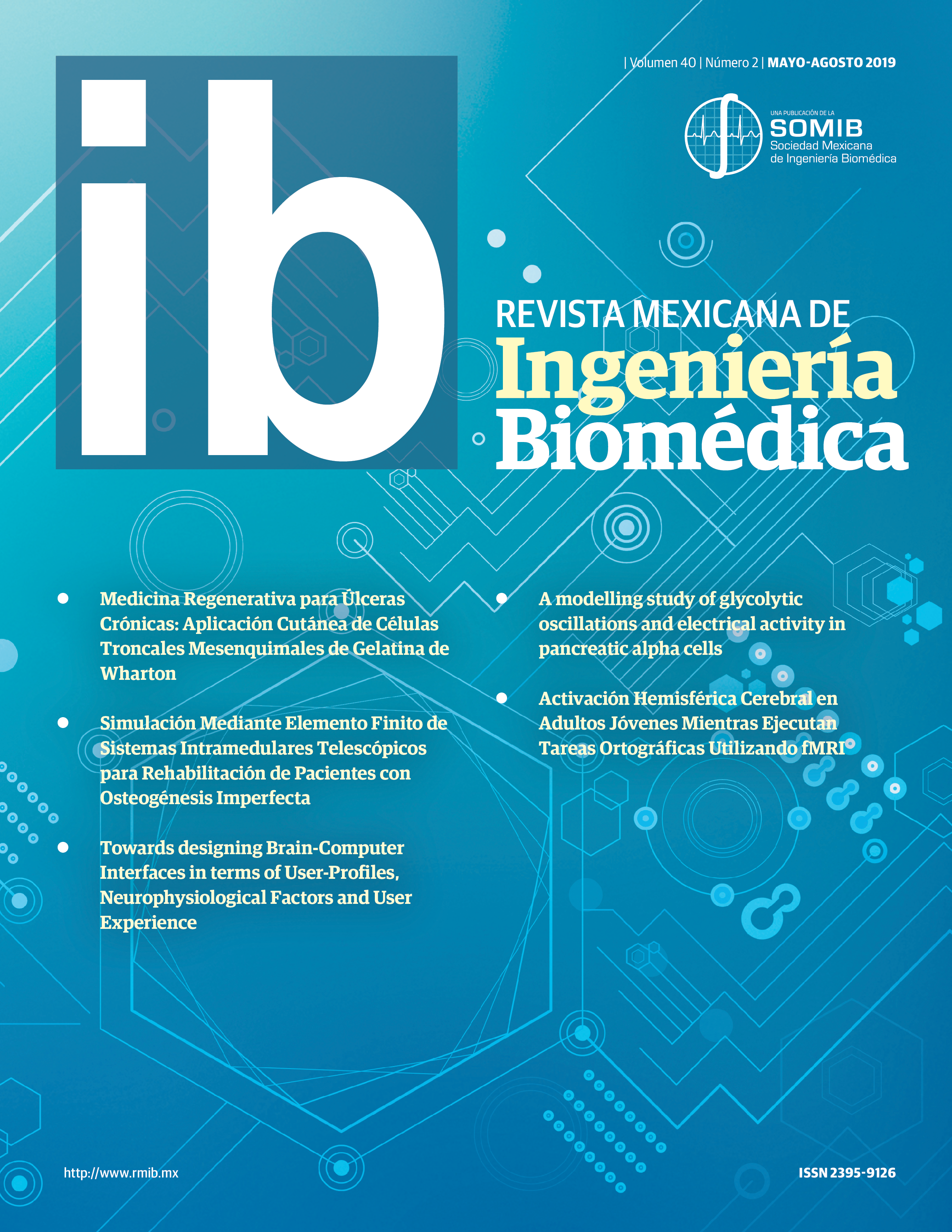Regenerative Medicine for Chronic Ulcers: Cutaneous Application of Mesenchymal Stem Cells of Wharton’s Jelly
DOI:
https://doi.org/10.17488/RMIB.40.2.1Keywords:
regenerative medicine, mesenchymal stem cells, chronic ulcersAbstract
Use of mesenchymal cells has emerged as an important part in regenerative medicine with positive effects in the recovery of damaged or lost tissues. Chronic ulcers include skin lesions that affect a large part of the population with diabetes mellitus, (for example, 9.14 develop diabetic foot according to ENSANUT 2016) and represent consi-derable economic expenses, due to poor quality of life in patients. The conventional treatment that is carried out in these cases is long term, and the generated beneficial effects that are presented are limited, since the injuries recur due to not having a specific and regenerative treatment, only palliative. That is why in this work they were obtai-ned and used mesenchymal stem cells derived from Wharton's jelly (MSC-WJ) under the criteria proposed by the International Society for Cell Therapy. The treatment was applied in two patients with chronic ulcers phlebostatic of different medical conditions and short-term monitoring, so it was a limited study. The results showed that MSC-WJ induced skin reconstruction by tissue formation granulation, in addition to decreasing the chronic inflammatory process in the area of damage, which favored the index of wound healing. Therefore, the use of MSC-WJ in chronic phlebostatic ulcers is proposed as a treatment in the regeneration of the tissue structure with short-term results.
Downloads
Downloads
Published
How to Cite
Issue
Section
License

This work is licensed under a Creative Commons Attribution-NonCommercial 4.0 International License.
Upon acceptance of an article in the RMIB, corresponding authors will be asked to fulfill and sign the copyright and the journal publishing agreement, which will allow the RMIB authorization to publish this document in any media without limitations and without any cost. Authors may reuse parts of the paper in other documents and reproduce part or all of it for their personal use as long as a bibliographic reference is made to the RMIB. However written permission of the Publisher is required for resale or distribution outside the corresponding author institution and for all other derivative works, including compilations and translations.








